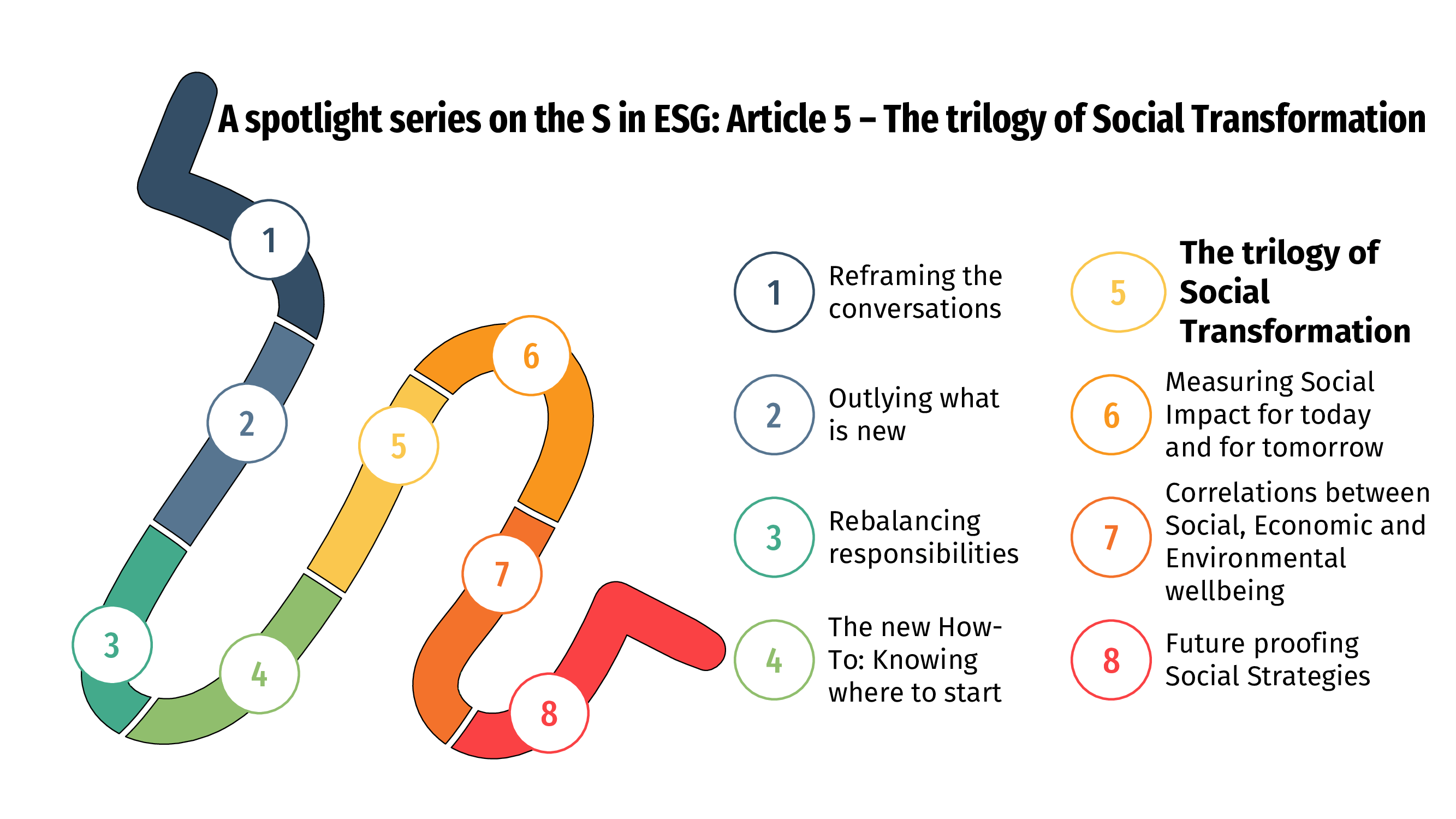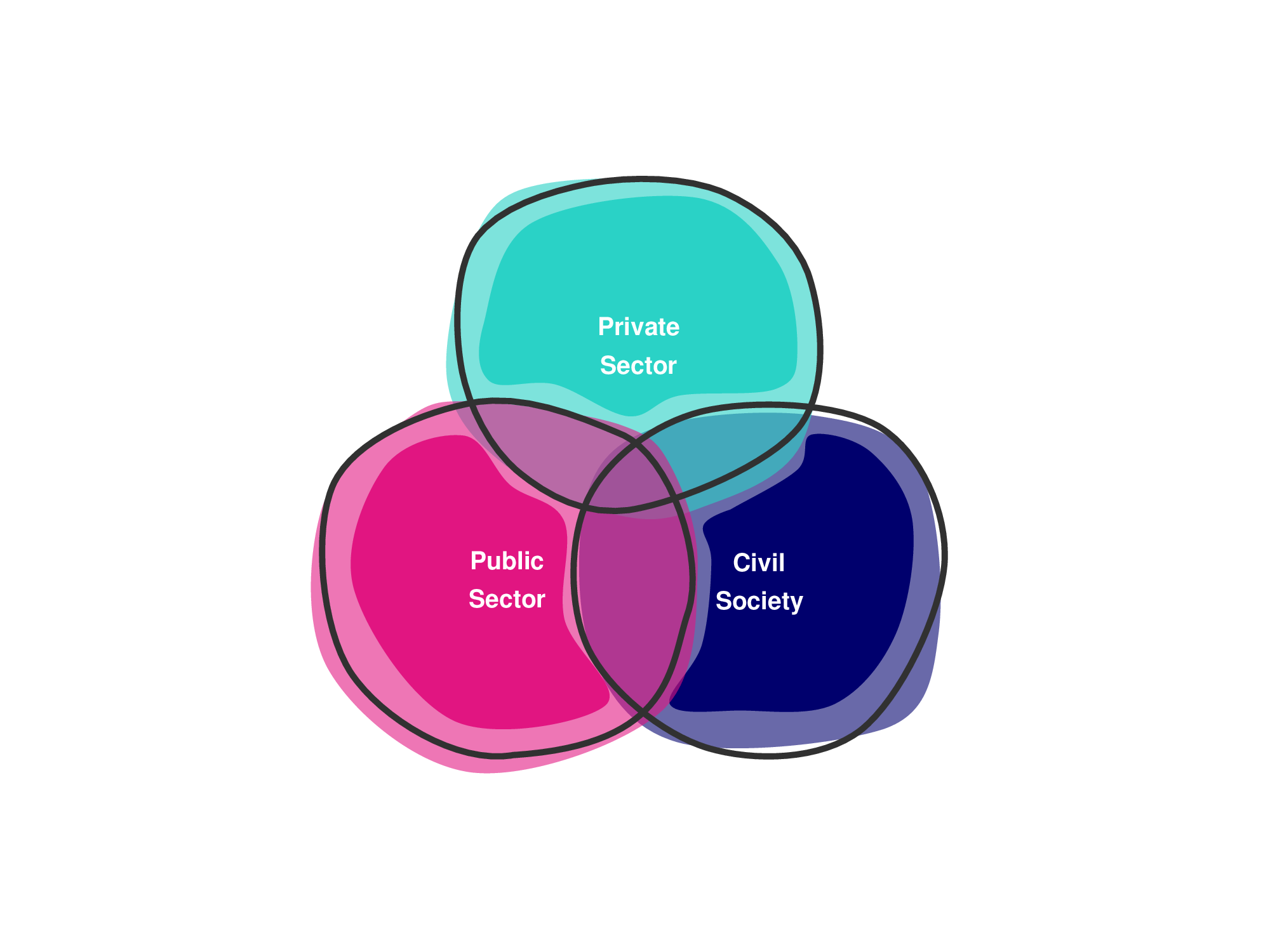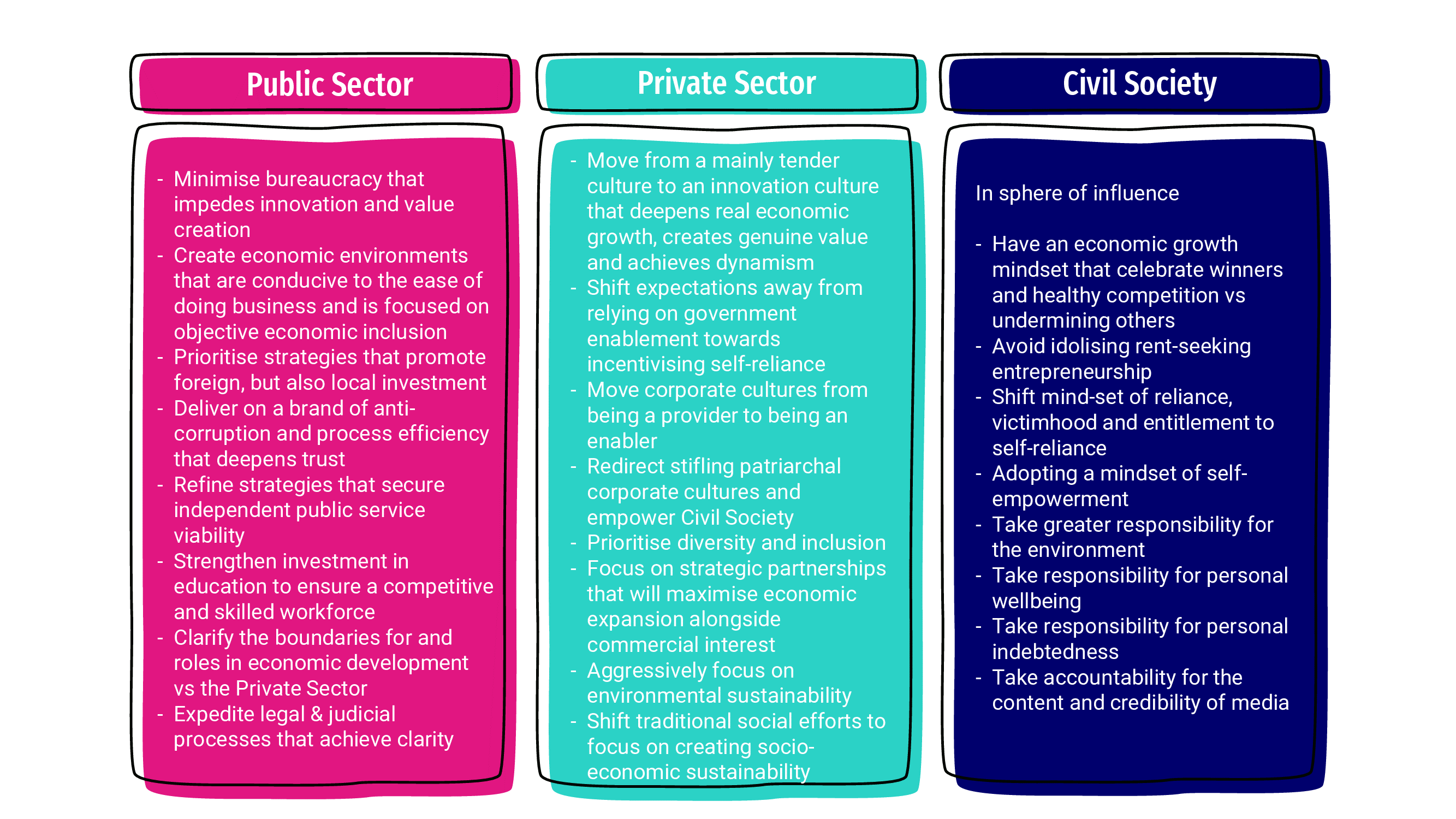Written by Retha van der Schyf
Focusing on the “Who” of Social Transformations
The phrase “Social Transformation” has become ubiquitous. Alongside headlining social protests, it has become a point of laser focus on geo- and socio-political agendas, and especially in Private Sector Board discussions as part of the rise of ESG framing.
Focusing mainly on the Private Sector, we in previous articles of this series concluded that this perceived new focus on the Social element of ESG is in fact not new at all. It rather signals a call to arms for an exponential evolution of existing social investment thinking and adoption. We noted that this evolution has been brought about simultaneously on the one hand by increased world threat from environmental, social and economic challenges; and on the other by increased human consciousness, integrated world knowledge and a more holistic understanding of the cause-and-effect of socio-economic interactions and interdependencies.
In my last article we took a closer look at how both these stick & carrot drivers have moved the needle on the ultimate underlying objectives of Social Transformation programmes. Ambitions no longer stop at solving important inequalities and social injustices pertaining to defined groups and circumstances. In the broadest sense, it now goes deeper and wider, with the new aim being the creation of more resilient societies to ensure more sustainable futures for the collective. This requires fresh thinking. We in the same article focused on how this new shift in the fundamental purpose of Social Transformation programmes has led to innovative changes in the “how-to” and “what-when” of these programmes, and what the latest best practices include.
In this article we will focus on the main actors within Social Transformation programmes. We hereby mean who is ideally responsible for what aspects of these programmes. It is important to appreciate how not just one actor, but rather the Public Sector, Private Sector and Civil Society need to work together ever more closely and deliberately to achieve needed increased resilience of collective communities, towns, cities and nations for the better of all.

Why create more resilient societies
Social Transformations aim to achieve lasting changes in the structure, values, norms, behaviours or relationships within a society. It involves a comprehensive shift in social, cultural, economic and political aspects that shape and influence the well-being of individuals, groups of people or a nation.
These are complex and multidimensional challenges that require collective action and collaboration from all the main actors within an environment.
But, before we take a closer look at the trilogy of actors and their ideal roles in these complex processes, it is worth being reminded how the inherent impetus of social development investments has shifted, and thereby the roles of each of the actors.
Rear-view
In general, traditionally Social Transformation programmes had their roots embedded in philanthropy, social justice, or both. Such ambitions are deeply meaningful and have shaped history. However, in the new era of environmental, social and economic threat, social programmes that previously had a largely ethical emphasis in terms of doing what is right, good and humane, now include the express need to secure systemic sustainability of eco-systems. In other words, the focus has moved from largely being about ethicacy, reparation, retribution or philanthropy, to being a systemic enabler, i.e., a must.
Future-focus
Future-focused Social Transformation programmes do not exclude solving for social ills, inequalities, and injustices. This will always remain important. It merely goes beyond to also address root causes within social systems, i.e., structures, norms, conditioning, and collective behaviours that now or in future will detract from the resilience of the collective society, and thereby threatens the long-term sustainability that is needed in its own interest., especially economically, environmentally, and geo-politically. More simply put, it is no longer just about doing what is good and right. It is about redirecting and enabling social systems in a manner that is beneficial to securing their own socio-economic sustainability in the medium and long-term, either locally, or beyond.
Appreciating this important shift in the underlying focus of Social Transformation programmes makes it easier to appreciate how and the extent to which the Public Sector, Private Sector and Civil Society now need to collaborate to ensure Social Transformations that critical economic and environmental reform or development depend on.
The Trilogy of Social Transformations: In General
Although the specific roles and responsibilities of each of the three main actors in Social Transformation programmes vary depending on local conditions and conditioning, some general considerations apply.

Role of Public Sector
The Public Sector is the sphere of society that provides public services, education, health, security, infrastructure and environmental protection. The Public Sector has a crucial role in Social Transformations as it sets the frameworks (i.e., laws, policies, regulations and incentives) that guide the collective behaviour and actions of the other actors in a society.
However, the Public Sector alone cannot address the complex and interrelated challenges that societies face today, such as geopolitical fractures, climate and nature emergencies, societal divisions and especially economic fragilities. The Public Sector needs to co-opt the other actors to leverage their expertise, innovation and influence to ensure socio-economic viability. For example, the Public Sector should shape an environment that allows the Private Sector to create solutions that are both profitable and sustainable, such as green technologies, circular economy models and social enterprises. The Public Sector should also work with Civil Society by engaging citizens, communities and stakeholders in the design and adoption of policies and programs that create healthier societies.
The Role of Private Sector
The Private Sector is the sphere of society that produces goods and services for profit. The Private Sector has a significant role in Social Transformations as it drives economic enablement, creates jobs, and generates wealth. The Private Sector can significantly contribute to social outcomes by adopting responsible business practices, such as respecting human rights, reducing environmental impacts, and promoting healthy social behaviours and wellbeing.
The Private Sector too cannot alone achieve Social Transformations without considering the broader impacts of its activities on society and the planet. It needs to align its interests with the common good and collaborate with the other actors to address the systemic challenges that threaten long-term sustainability. For example, the Private Sector can work with the Public Sector to shape regulations and practices that promote commerciality and thereby economic sustainability, transparency, inclusion and accountability. The Private Sector can also work with Civil Society to respond to and shape the needs, expectations, behaviours and cultures of customers, employees, investors and communities.
The Role of Civil Society
Civil Society refers to all citizens and associations that operate outside of government and business. Civil Society has a vital role in Social Transformations as it represents the collective voice, cultures, norms and interests of diverse groups within a society. Civil Society has the power to adopt, or not, behaviours that directly affect the wellbeing of the environment.
Civil Society too cannot alone achieve Social Transformations without engaging with and relying on the other actors. Civil society can strengthen its capacity and accountability to play an effective role by voting for and adopting public policies designed to increase the wellbeing of the society. Civil Society can also work with the Private Sector to hold them accountable for their social and environmental impacts and to partner with them on initiatives that create shared value.
Specific considerations for Namibia

In closing
Social transformations that target the creation of more resilient societies in order to enable more sustainable futures, are not one-off events. Nor are they a single actor’s responsibility. It is a continuous process that requires collective action and collaboration from all parts of society.
Public Sector, Private Sector and Civil Society need to work together to achieve Social Transformations by leveraging their respective roles, strengths and resources. By consciously and overtly doing so more often, we will create the more inclusive, sustainable and resilient futures we all need, rely on and hope for.
About the Author
Retha van der Schyf is a socio-economic strategist that works with private sector, CSOS and government organisations to transform economies, societies and conurbations. For more about the author, refer to:https://www.linkedin.com/in/rethavanderschyf/

